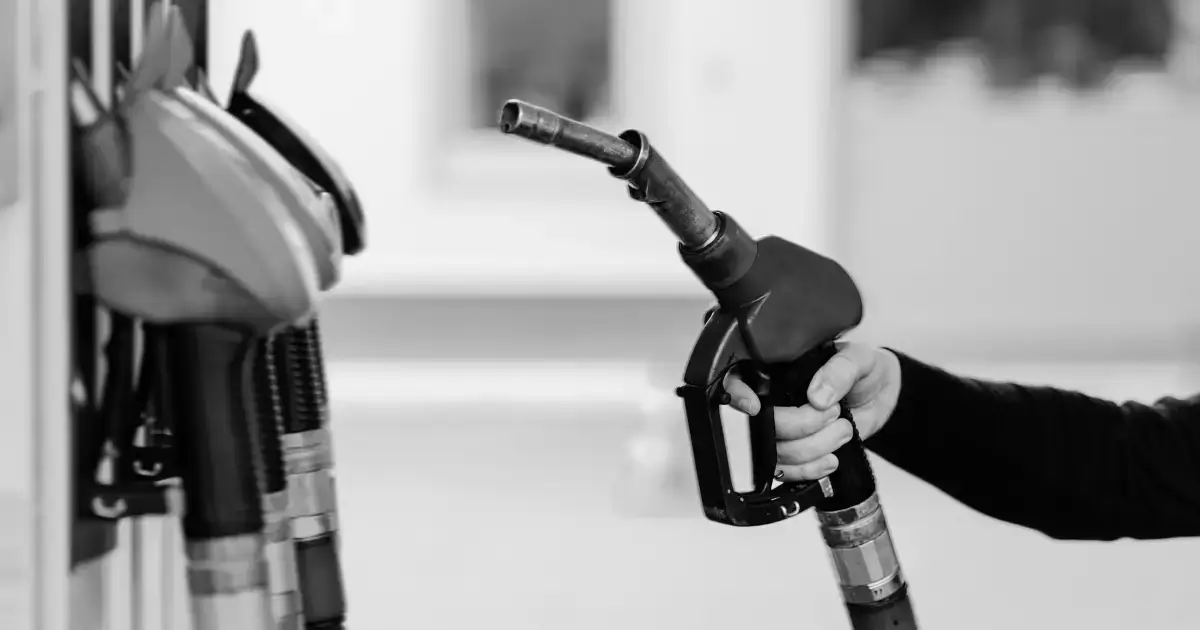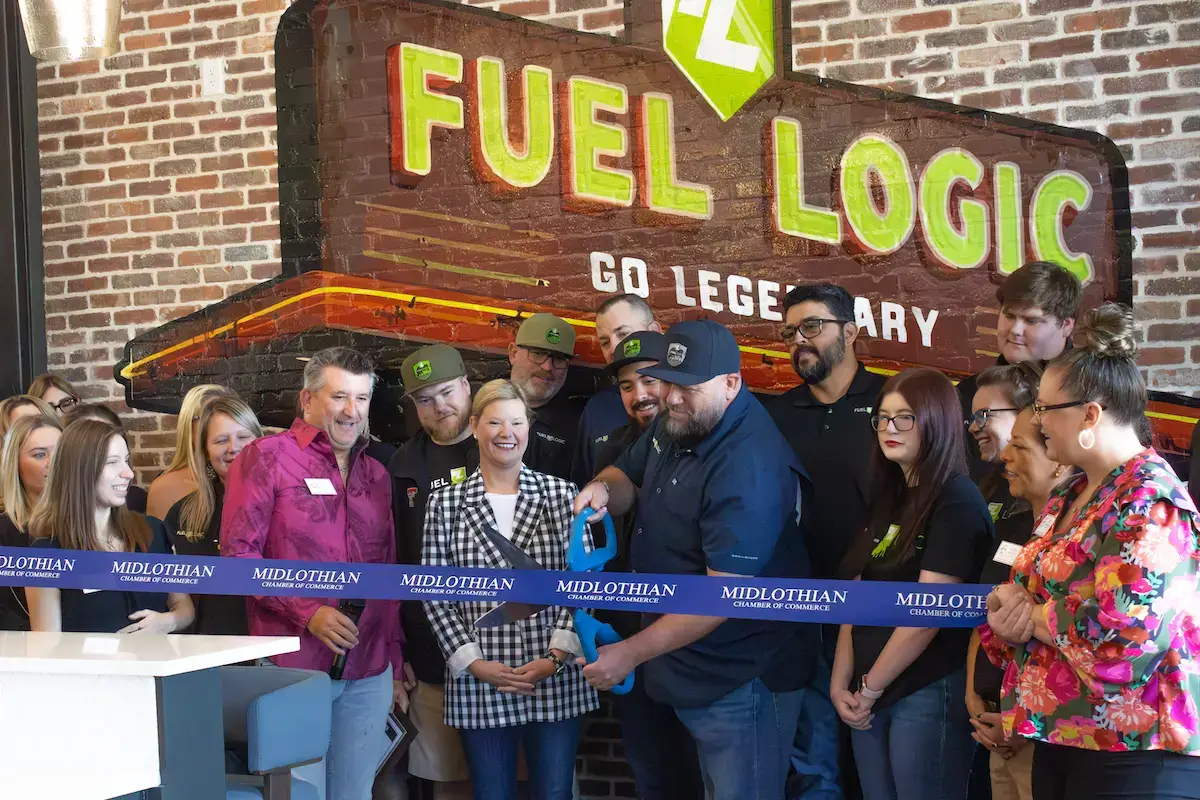Many drivers struggle to pick the right fuel for their vehicle’s engine. This concern is valid because the lifespan and efficiency of a car’s engine depend largely on the type of fuel that powers it. High-quality fuel helps your engine operate better and improves throttle response while the correct octane rating prevents knocking and engine damage.
Good fuel can also improve fuel efficiency, giving you more miles per gallon. In contrast, low-quality gas can cause engine deposits, DEF system problems, leading to low fuel economy and costly repairs.
Then, what is the best gas to use? And, who has the best quality gas? This blog will guide you on how to determine the best gas for your specific vehicle. We will explain a few common types of gasoline and address prevalent misconceptions.
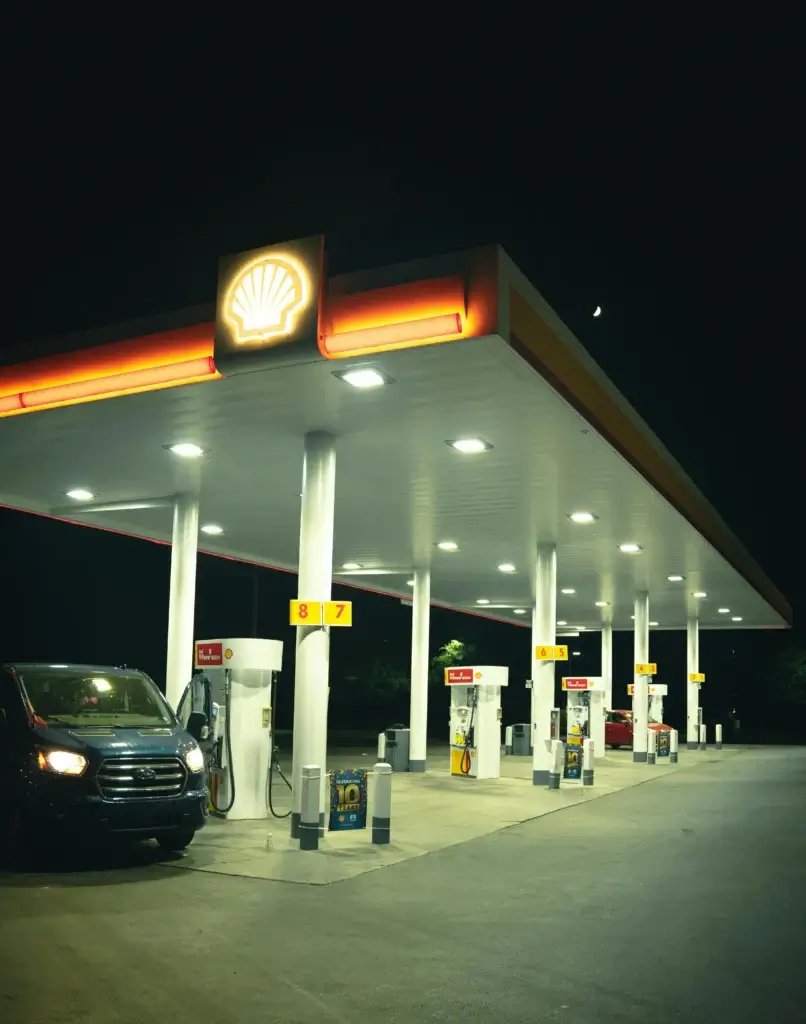
What Are The Different Gasoline Types?
Let’s understand the different types of gasoline you may use, depending on the octane rating that is safe for your vehicle’s engine. Each type has unique properties that can impact performance and efficiency.
1. Regular Unleaded Gasoline
Regular unleaded gasoline, with an octane rating of 87, is suitable for most vehicles, including city and highway driving. Use regular gas only if your vehicle’s manufacturer recommends it, as the engine performs best with the designed fuel. Avoid experimenting with higher-octane fuels.
Regular gasoline is typically cheaper than premium options and is eco-friendly since it doesn’t contain lead. The octane rating indicates the fuel’s ability to resist knocking, but for high-compression engines requiring higher octane, using regular gas may lead to knocking issues.
2. Mid-Grade Gasoline
Mid-grade gasoline, with an octane rating of 89-90, serves as a bridge between regular and premium fuel. High-performance or older engines may benefit from it if recommended by the automaker or if knocking occurs with regular gas.
Yet, most vehicles don’t require mid-grade, and its higher cost per gallon often doesn’t justify the benefits.
3. Premium Gasoline
Premium gasoline is designed for high-performance engines and luxury vehicles. It has an octane rating of 91 to 94. Common vehicles that require premium gas include different brands like BMW, Audi, and Mercedes-Benz, as well as sports cars like the Ford Mustang GT and Chevrolet Corvette.
Premium gas offers better resistance to knocking and enhances performance in engines that need it. However, if your vehicle doesn’t require premium fuel, using it won’t improve performance, fuel efficiency, or emissions. This means you may be wasting money at the pump.
4. Other gas types (Diesel, E85 (Ethanol), etc.)
There are other types of gasoline as well, such as ethanol blends (E10, E15, and, E85, etc.) E10 contains 10% ethanol and 90% gasoline and is safe for any gasoline-powered vehicle. It helps reduce carbon monoxide emissions and is commonly found at gas stations across the U.S. E15 contains 10.5% to 15% ethanol and is approved for vehicles made in 2001 and later. Flex fuel, or E85, consists of 15% gasoline and 85% ethanol, made from renewable resources like corn. It is cheaper at the pump but may offer reduced fuel economy.
” Diesel is a common fuel type for diesel engines, ideal for high-torque vehicles like freight trucks, delivery trucks, buses, and farm equipment. Electric and hybrid vehicles do not use traditional gasoline; they rely on electricity or a mix of electricity and fuel. This influences fuel choices as drivers prioritize charging stations for electric vehicles or alternative fuels for hybrids instead of conventional brand of gasoline options.
How to Choose the Best Gas for Your Vehicle
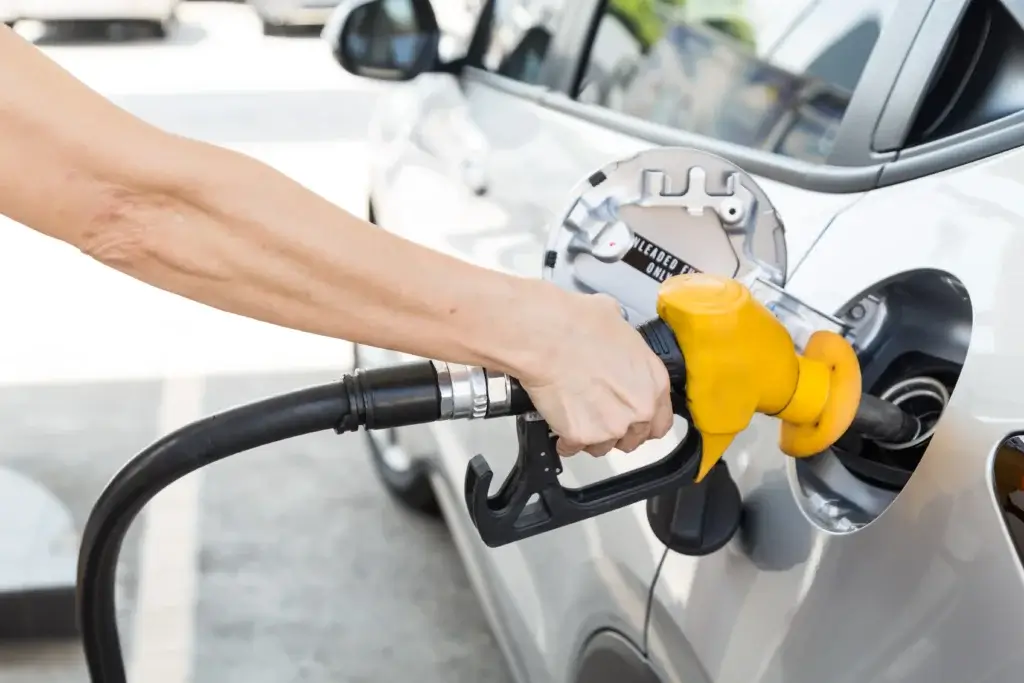
Are you frequently searching “top tier gas near me”? It’s no surprise. Every fleet owner or anyone purchasing large amounts of fuel for equipment is seriously concerned about fuel quality.
In fact, everyone should buy TOP TIER™ gas that meets the performance requirements set by engine manufacturers. You don’t have to sift through the best and worst gasoline brands; instead, look for the TOP TIER™ logo displayed on the pump, pump handle, canopy, or in a station window.
You can also determine the best gas for your vehicle by acknowledging and assessing the following key factors:
1) Check the Car Manufacturer’s Guidelines
Following your automaker’s guidelines is essential for selecting the right fuel. Your owner’s manual specifies the required octane rating. If premium gasoline is recommended, use it; otherwise, regular gas is acceptable. Ignoring these recommendations can result in reduced performance and engine issues. Always consult your manual for the best gas options.
2) Consider Different Driving Conditions
If your route includes high-altitude areas, using premium gas with a higher octane rating is advisable. The thinner air can cause engines to knock, making top-tier fuel a better choice.
In extremely hot climates, fuel can evaporate quickly, which may reduce engine performance. In this case, selecting gasoline formulated for hot weather can help because it contains more energy and can improve fuel economy. In contrast, cold weather can also affect fuel performance. Regular gas generally works fine, but winter blends are preferable for easy ignition in low temperatures.
3) Understand Your Engine’s Specifications
High-performance engines, particularly turbocharged ones, require higher octane gasoline for optimal function due to their elevated compression ratios. If your vehicle’s manufacturer recommends premium gasoline, using regular gas may result in reduced performance.
Additionally, if you have an aging engine, it’s important to consider its condition and the potential for carbon deposits. Older engines might benefit from fuel with additives that clean and protect engine parts. Some best gas brands offer all kinds of fuel additives, so you can buy from them to clean and protect your engine parts.
4) Evaluate Fuel Efficiency
You should balance the cost of gas with fuel efficiency by tracking how many miles per gallon you get with different fuel types. You should also calculate whether the extra cost of premium gas leads to better fuel economy.
” Cheaper gas may seem appealing, but low-quality fuels can harm engine performance and emissions. Choosing top-tier fuel with better efficiency can save you money and protect the environment.
Here are a few other tips you must know when choosing the right fuel for your vehicle:
- Check your vehicle’s fuel requirements in the owner’s manual or on a sticker inside the fuel door. It will tell you the type of gas your car needs.
- At the pump, pay attention to the labels showing the octane rating (87, 89, or 91). These ratings indicate the fuel’s ability to prevent engine knocking, which is particularly important for high-compression automotive engines.
- You must not use any fuel other than what is recommended in the owner’s manual or on the fuel door. If you do so, you might encounter severe issues like engine knocking, reduced power, lower fuel efficiency, or long-term engine damage.
Myths and Misconceptions about Gasoline
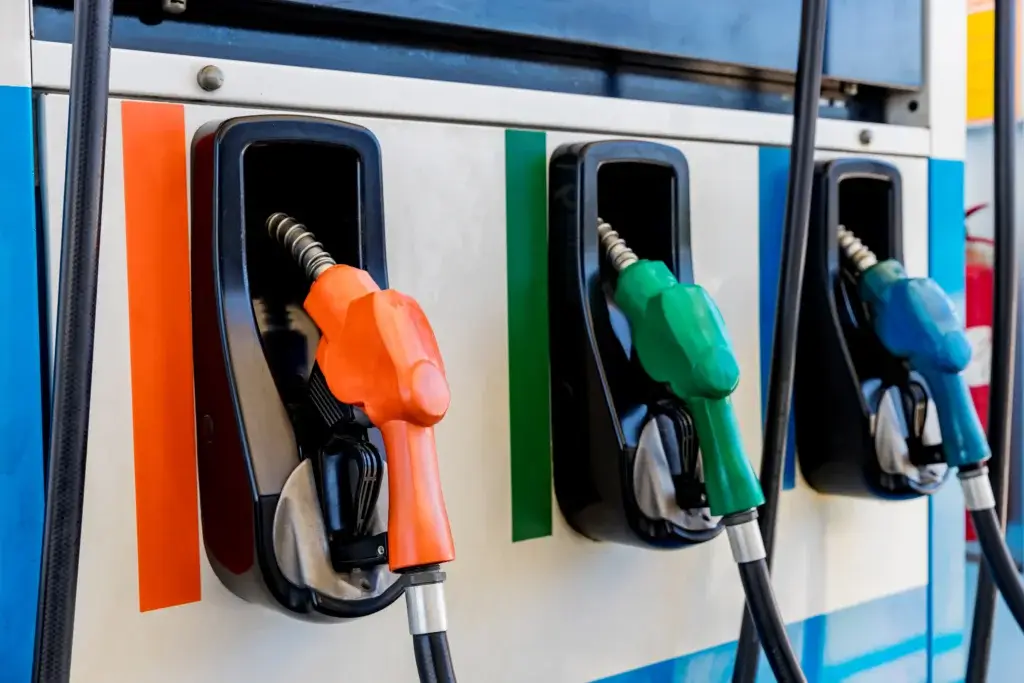
The following are some common myths about gasoline that you might have heard in your surroundings. Let’s understand the truth of the matter:
● Top Tier and Premium Gas Always Improves Performance
Many believe premium gas enhances performance universally, but unless your car requires high-octane fuel, using premium gasoline offers no significant benefits.
● Higher Octane Equals Better Fuel Quality
Higher octane doesn’t always mean better fuel. It’s only essential for specific high-compression engines. For most cars, using the manufacturer-recommended gasoline ensures optimal performance and fuel economy.
● Diesel and Gasoline Are Interchangeable
Some misguided experts suggest that diesel can be used just like gasoline. However, this is a myth. Diesel engines and gasoline engines are built differently, and using the wrong fuel can cause major engine damage.
● Ethanol Blends Will Harm Your Car’s Engine
There’s a persistent fear that ethanol-blended fuels like E10, E15, or E85 will damage your car. The fact is, that ethanol blends are safe for most vehicles and can even help reduce emissions without harming your engine.
Get the Best Gas for Your Vehicle with Fuel Logic
Looking for the best gas to use for your vehicle? Look no further.
Fuel Logic offers high-quality gasoline delivery to multiple locations across the USA, helping you manage your fuel needs.
With fluctuating gas prices in the US, we ensure competitive rates and reliable fuel delivery services.
We also provide DEF and other essential fuels to keep your operations running smoothly.
So, what are you waiting for?
Call us now to order fuel, and if you have any queries, contact our customer support team.
You can also visit our FAQ section.
⚡ Key Takeaways
- Always follow your vehicle’s owner manual or fuel door label to choose the correct octane rating. Using the recommended grade prevents engine knocking and ensures optimal performance.
- Choosing TOP TIER™ certified fuels with superior detergent additives helps keep engines clean, improves throttle response, and reduces harmful deposits.
- High-performance and turbocharged engines often require premium fuel (91+ octane), but using premium gas in engines designed for regular fuel usually offers no benefits and wastes money.
- Ethanol blends like E10 and E15 are safe for most gasoline engines and help reduce emissions, while diesel is strictly for diesel engines and not interchangeable.
FAQs (Frequently Asked Questions)
Does premium gas give better mileage?
Premium gas has a higher octane rating, aiding high-performance engines. However, if your vehicle requires regular gas, using premium fuel won’t enhance fuel economy. Generally, using a higher grade than recommended by your vehicle’s manufacturer provides no benefits. Stick to the recommended fuel for optimal performance.
Does branded gas and top tier gas make a difference?
Branded gas often contains additives that clean your engine and reduce carbon deposits, enhancing performance. However, if non-top tier fuel suits your vehicle better, you can use it. Prioritize finding the right fuel for your car, and always consult your owner’s manual for the manufacturer’s recommended gasoline.
How do I choose the best fuel?
For optimal performance, use the fuel recommended in your owner’s manual or the label in the fuel filler door. If you have a turbocharged or high-compression engine, select higher-octane gasoline. Choose top-tier fuel for better combustion efficiency and lower emissions, ensuring it meets EPA standards and includes a minimum level of detergent to keep your engine clean.
Should I use 87 or 89 gas?
Choose the best gas based on your vehicle’s octane rating. Use 87 octane for cars that recommend it, and opt for 89 octane if specified for optimal performance. Using regular gasoline in a vehicle designed for premium fuel may not damage the engine, but could result in reduced fuel economy.
What happens if you put 91 instead of 87?
Using 91 octane in a vehicle designed for 87 won’t harm your engine, but you won’t gain performance. Modern vehicles adjust timing for higher octane, so differences may be negligible. However, engines not built for premium fuel might experience reduced performance and fuel economy.
Keep Your Fleet Running
with the Best Gasoline
Fuel Logic keeps your fleet moving 24/7 with top-quality fuel tailored to your fleet’s needs—reach us anytime for on-site fueling.
Conclusion
When considering what is the best gas for your car, it is essential to understand the different types of gas available. Gasoline for your car typically comes in various grades, including regular, mid-grade, and premium gasoline. The type of gas that is best for your vehicle can depend on factors such as the manufacturer’s recommendations and the engine’s compression ratios. Using top-tier gasoline, which often contains a higher-quality additive package, can help prevent carbon deposits and improve engine performance.


